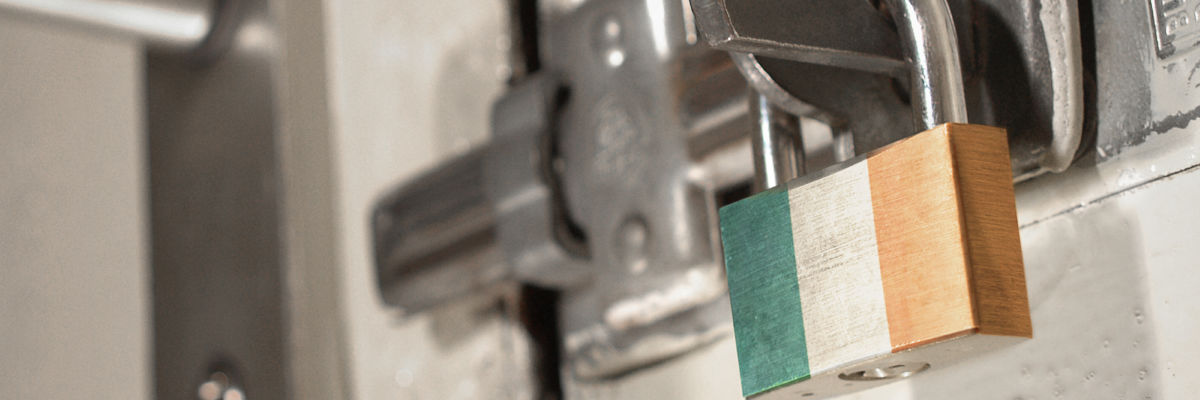
A shepherd shall cross the stormy sea, bent staff in his hand bringing peace. . . . He shall preach a strange new doctrine, and his people shall answer “Amen!” Our religion shall vanish from Erin; a new faith shall be magnified then.
—Druidic prophecy from an ancient life of St. Patrick
I, Patrick, am a sinner, the most uncultured and smallest among all the faithful, indeed many people consider me to be worthless.
—St. Patrick, Confession
The ancient Druid’s prophecy proved true. Patrick, the “Apostle to the Irish,” would convert a pagan nation to Christ.
Astonishing miracles abound in the ancients’ recordings of Patrick’s life. Some of the stories are quite whimsical—and a few, perhaps, are questionable in light of Patrick’s saintly character. It was written, for example, that he prayed to God that the citizens of Rome be put to sleep so he could make off with a load of their precious relics to take back to Ireland. Surely, no matter how much the far-off Irish could benefit from the spiritual treasures of Rome, Patrick was far too respectful of the seventh commandment to want to procure them that way!
We know a fair amount about the life of this fifth-century saint. The second of our opening quotations shows the opening words of Patrick’s own Confession, probably the most reliable material available on the events of his life. Note the remarkable humility: the conqueror of the fearsome Druids, converter of a nation, banisher of demons (and snakes), raiser of the long dead, and worker of sundry miracles declares himself “worthless”!
Where did Patrick come from, that he became such a towering figure in Church history? He was born in Britain and lived on a small estate near Bannavem Taberniae, the “field of the tents” that once housed Roman legions. The son of a Catholic deacon, he did not take his faith seriously until shortly before his sixteenth birthday, when Irish slave-traders captured him, along with thousands of other Roman-Britons, and shipped them all off to the Emerald Isle.
Patrick said God used his captivity to open his eyes and convert his heart. During long days of tending sheep, he prayed ceaselessly, day and night, for six years. Then, in that sixth year of his captivity, Patrick heard a voice in a dream tell him he would return to his country. Soon after, the voice told him his ship was ready, but it was 200 miles away, in a place he had never been and where he knew not a soul.
So Patrick took flight. As a runaway Irish slave, he faced death if he was captured, but with God directing his path, he says he made the journey without fear.
The dream proved true. Patrick escaped his captors and returned home, where he was received “like a son.” His kin and friends hoped he would never leave. And yet, after some years, God pulled his heart and his thoughts back to Ireland.
One night in a vision, a man brought Patrick thousands of letters. He opened one and read the first line: “the voice of the Irish.” And then he heard them, as if in one voice—the people of the wood of Focluth upon the western seas, calling to him: “we implore you, O holy boy, to come here and be with us.” His heart was rent, and he thanked God for those Irish pagans’ prayers and for his finally having heard them.
Patrick determined that he would bring Christ to the Irish people, but he did not return to Ireland until decades later, in his forties or fifties. Why not? Well, he said he was “uncultured” and “uneducated.” It was true: his formal education had ceased at the time of his capture, and it took him decades to make up for that lost time to become a priest and then a bishop capable of carrying out his grand mission.
By the time Patrick returned to Ireland, his devotion to the Holy Trinity burned inside him, and Holy Scripture had become a second language to him, if not his first. For example, whereas generations of scholars tried to deduce exactly where Patrick lived out his slavery if the ship to take him home was 200 miles away, more recent scholars suggest that Patrick may not have been providing a literal distance at all. Two hundred miles equates to the “one thousand six hundred stadia” mentioned in the book of Revelation to represent a great distance (14:20). In fact, in the few dozen pages of Patrick’s Confession, he employs more than a hundred scriptural references and allusions.
I’ll end with one of my favorite stories from Patrick’s life—a believable one, since Patrick sings paeans of gratitude to God time and again in his Confession. A great chieftain heard of Patrick’s repute and sent a magnificent copper cauldron. When his man returned, he asked how Patrick reacted to the precious gift. The man replied that Patrick had said simply, “Thanks be to God!” The chieftain, miffed that Patrick had not thanked him, told his man to go take the cauldron back. And what was Patrick’s response to that? “Thanks be to God!”
The chieftain decided that a man who thanked God whether a great good was given or taken away was a man he wanted to meet. He did meet Patrick, who introduced him and his people to Christ.
Let’s conclude with an excerpt from Patrick’s famous “Breastplate” prayer, inspired by his love of Christ and the words of Isaiah 60:1: “Arise, shine; for your light has come, and the glory of the Lord has risen upon you.”
Christ with me,
Christ before me,
Christ behind me,
Christ in me,
Christ beneath me,
Christ above me,
Christ on my right,
Christ on my left,
Christ when I lie down,
Christ when I sit down,
Christ when I arise,
Christ in the heart of everyone who thinks of me,
Christ in the mouth of everyone who speaks of me,
Christ in every eye that sees me,
Christ in every ear that hears me,
I arise today through a mighty strength,
The invocation of the Trinity,
Through a belief in the threeness,
Through a confession of the oneness,
Of the Creator of Creation.
Amen.
Happy St. Patrick’s Day!



